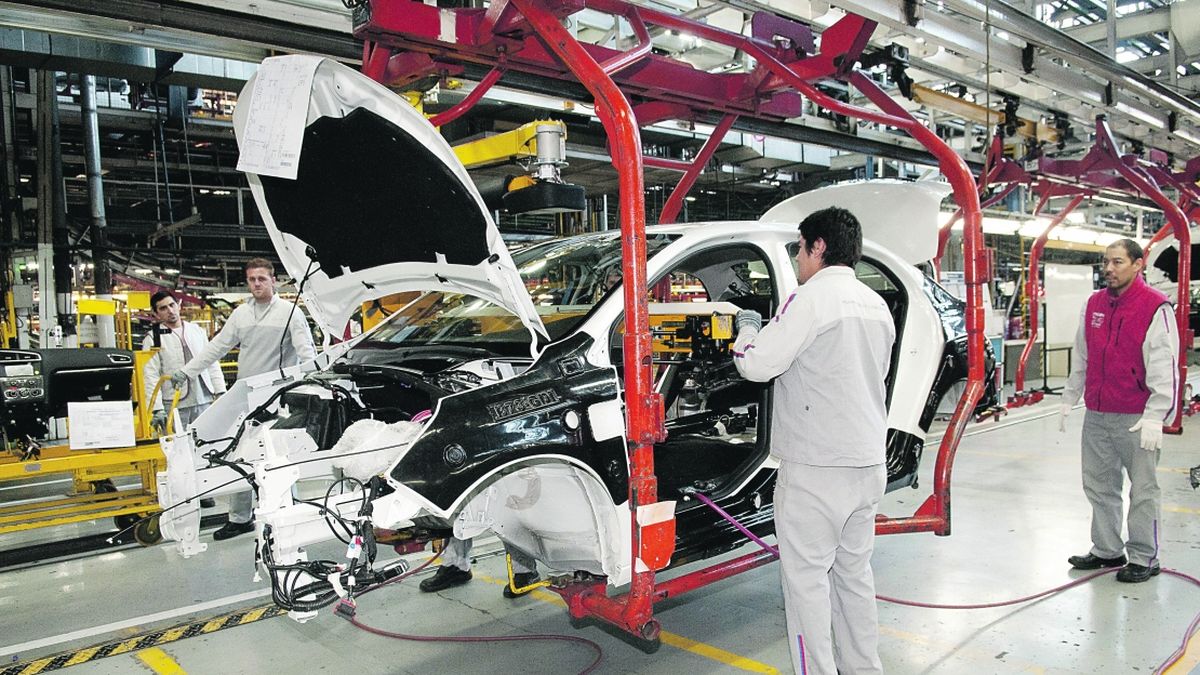Before the heights prices of the cars In Argentina, the deputy José Luis Espertin his X account, described the sector as “armor”, spoke of “armed robbery” and proposed that all cars should be imported and that Argentina should dedicate itself to manufacturing tractors and combine harvesters.
“The manufacturing or assembly of cars in Argentina is armed robbery. All the cars would have to be imported and the car factories would manufacture harvesters, tractors, seeders, and plows...Other irons, other 4 wheels and on top of that, better salaries for workers,” said the legislator.
Given this statement, the association of manufacturers of auto parts (AFAC) came out to respond to the statements of the national legislator.
“On behalf of the Argentine auto parts industry, we consider it necessary to refer to the recent statements of Mr. National Deputy, Dr. José Luis Espert, in which he expressed his opinion on automotive production in our country. Although we value a large part of Dr. Espert, mainly with regard to the generation of well-being by the private sector, we believe that it has been expressed based on distorted and incomplete knowledge, and certain prejudices that have taken root in some sectors of society about the industry in question. general, and in particular the automotive industry,” the statement says.
With a history of more than 100 years – points out AFAC – The automotive industry has established itself as a pole of technological development and highly relevant human capital, being a “hotbed” for the rest of the productive sectors and with a presence in a large part of our territory (especially in Buenos Aires, Córdoba and Santa Fe).
“This activity, although it must face very important technological and geopolitical challenges worldwide, has attributes to display with pride,” he adds.
In that sense, the entity listed a series of data about the sector:
- 24th place in the ranking of world automotive production, with only 32 countries with production above 200 thousand units per year.
- 13 automotive companies producing locally. 442 auto parts (replacement market and OEM).
- Production of 532 thousand vehicles in 2024, 60% export (73% Mercosur, 27% Extrazone).
- Production of auto parts for USD 8,808 Mill (2.9% of the Industrial VBP).
- Direct employment of terminals: 25,936 people. Direct auto parts employment: 43,429 people.
- Productive chain that directly employs 5.5% of the industrial employment in our country, with highly qualified positions and salaries well above the average.
- Direct exports of auto parts for USD 1,283 M. (67.8% Mercosur and 32.2% Extrazone).
- Net foreign exchange savings of US$12 billion. These results have been obtained despite decades of macroeconomic instability (sometimes also political) and total lack of predictability in deciding investments.
“Predictability is not only related to the macroeconomic aspect, but also to the type of commercial relations that characterize a productive chain. All of this, added to erroneous and biased sectoral policies, generated a reduction in the local integration of parts, affecting above all to the auto parts link (largest generator of direct employment in the productive chain)”, AFAC highlighted.
In that sense, he added that “let us celebrate the structural changes that are beginning to be generated by the national government and a large part of the political leadership. The new challenges require a rethinking of the sectoral strategic objectives and the appropriate policies to achieve them, along with measures pragmatic situation that ensures a transition for the sustainability of a new business model. It would make no sense to allocate efforts and resources to sustain an automotive chain that is not fully developed.”
For this reason – AFAC maintains – “we are currently working on an agenda that includes, among others, issues such as the renegotiation of trade agreements, effective tariff structure of the automotive commercial and productive chain, realistic rules of origin to avoid triangulations, unwanted effects of the promotion schemes of Manaus and Tierra del Fuego, new labor agreements and the tax burden on production.”
AFAC recalled the words of the president, Javier Milei, who pointed out that “it is true that Argentine cars are more expensive because they are the ones with the highest tax burden.”
Vehicles produced in Argentina have a 54% tax, after the Country Tax has been eliminated.
As stated in a recent work for the metallurgical chain, 33% of this heavy tax burden falls on the production stages, with taxes that do not exist in the majority of the countries with which we compete.
For example, local auto parts used for the assembly of vehicles face the weight of Gross Revenues, municipal taxes and their entire “cascade effect”, while imported parts face only an advance payment.
“A realistic, sincere and transparent analysis of the true root causes of the differences in costs and prices with other countries with market economies is still pending.
Conditions are needed that drastically reduce the burden on those who produce and generate employment in our country, so that under equitable competition and without shortcuts, there is an increasingly solid productive sector that contributes constructively to economic growth and opportunities for all Argentines. .
“Evolutionary intelligence does not lie in dissolving what has been built over decades with enormous material and human efforts, but in the rational use of accumulated knowledge as the basis of the process of adaptation and continuous development,” the entity concluded.
Source: Ambito
I am an author and journalist who has worked in the entertainment industry for over a decade. I currently work as a news editor at a major news website, and my focus is on covering the latest trends in entertainment. I also write occasional pieces for other outlets, and have authored two books about the entertainment industry.




